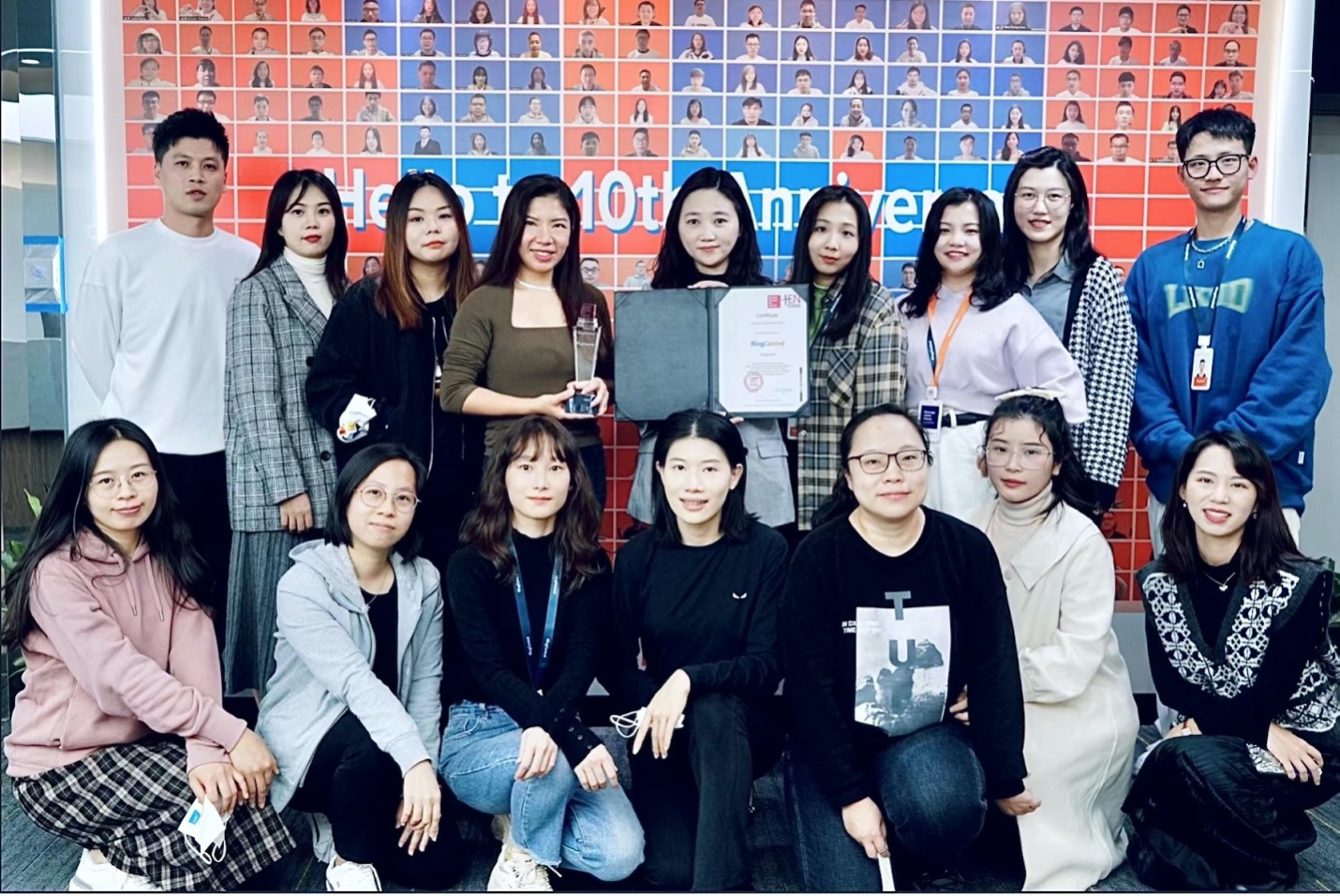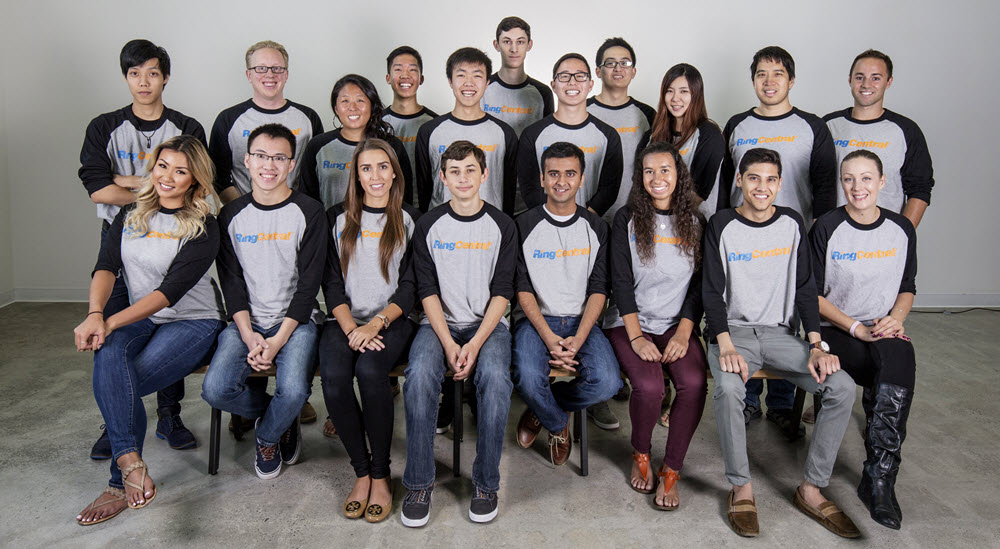Highlights:
- Internships or apprenticeships are one of the most important factors for employers considering new grads for full-time positions.
- In a field driven by innovation, diversity of thought, experience, and background are essential—and that comes from a diverse, eclectic workforce
Diversity is a much-discussed topic in the tech industry, but representation for BIPOC (Black, Indigenous and People of Color) and LGBTQ+ tech workers is still not where it needs to be. Early-career candidates are told they need experience to break into the industry, but opportunities to get that experience are few and far between.
Transition N2Tech a new apprenticeship program ramping up this fall, is a unique partnership between RingCentral’s Diversity, Equity and Inclusion (DE&I) team and our University Recruitment Program that focuses on helping new, and soon-to-be grads the hands-on experience they need to get over the “we’re looking for experienced candidates” hurdle.
We sat down with three Transition N2Tech participants to get their thoughts on what the program offers, how it’s different, and why the need for programs like this exists in the first place.
Our Transition N2Tech Apprentices include:
Isaac Pyram—Applications Security Engineering Apprentice, Westchester, NY
James Sagastume—Cybersecurity Engineering Apprentice, Queens, NY
Charity Myers—UX Interaction Design Apprentice, Brooklyn, NY
RINGCENTRAL: Give us a rundown of what the Transition N2Tech program means to you.
CHARITY MYERS: “I’m part of the UX design team. We’re working directly with mentors, so I really do feel like I’m integrated into the team. I may not have as much responsibility as others but they try to include me in everything. So it really does just feel like a permanent position.”
ISAAC PYRAM: “Essentially, it’s an immersive experience to transition directly into the role. The workload, team interactions, and expectations are not academic exercises. Instead, they are consistent with the goals set forth every quarter where contributions can be meaningful and have real implications. I’ve explored different aspects of technology over the years, from technical training to IT operations (tech support, systems administration and the like) across industries. This is my first foray into cybersecurity and I have never known a more supportive environment.
JAMES SAGASTUME: “From my experience, it’s real work. The work that is assigned and the projects that are assigned to the individual, these are actual industry standard practices, and regulations that you have to adhere to, so it’s real work. The overall program involves all sorts of tech — UX, design, cybersecurity, but whatever area you’re in, they give you actual hands-on work that’s standard industry practice today.”
RC: What is it like for underrepresented people trying to get into the tech industry?
Are there a lot of programs out there like this? Is Transition N2Tech filling a need?
IP: “There are a lot of similar programs, but maybe not as successful. A few of my friends have taken boot camps in application development, and graduated only to be stuck with a bill and nothing to do. Like me, they had the knowledge and the skills, but were overlooked entirely. So, being afforded a chance to actually gain the experience that is key on particular technologies is where the value lies in Transition N2Tech.”
CM: “I agree. For me, breaking into tech has been difficult. I finished school in February, 2020. Now it’s late 2021, and it took a year and a half to even find an apprenticeship. There are people who graduated with me who are getting jobs – and that’s based on the practical experience they’ve had access to because of their personal networks and connections. I’ve taken extra programs and I’ve redone my portfolio so many times and senior people have looked at it and shrugged their shoulders, because it’s a question of practical experience. That’s what we desperately need, and it’s what I’m so glad Transition N2Tech provides.”
RC: Expand on that a little, everyone. What makes it so tough for underrepresented people to get into the tech industry?
CM: “There was a senior designer at a major streaming company who mentored me, but then he was like, “Oh, we only hire senior designers.” Well, how am I supposed to become one if no one lets me get that experience? And not all mentorships are created equal, either. I had a mentor at another media company, who gave me a lot of tough love on my portfolio, and I certainly took his advice, but once I’d done everything he’d advised me to? He threw up his hands and told me there was no actual work for me. Meanwhile, my friend who had a mentor at a different company got a gig with that company. It’s disheartening.”
JS: “It’s a little different in cybersecurity, you’re dealing less with personalities and more with the technical thresholds that comprise the industry standard. You either know the tech or you don’t. So, I graduated from my boot camp, and sent my resume to probably 200 companies. Almost all of them told me I’d need this certification or that experience. Now at least in terms of the certifications, those are something you can go out and get, but – they have a cost, and that’s not something everyone can deal with. You need money in order to take that exam but you can’t get that without a job. It’s tough.”
IP: “I’d agree with James. Boot camps tend to have a very steep upfront cost. As they’ve become more approachable recently, we jumped at the opportunity, saw it through, and graduated. The next hurdle was positioning. Many companies favor bootcamps and certifications over degrees while others prefer candidates who are college educated.There is also a category of employers who place more of a premium on experience above all else. In fact, for cybersecurity, a minimum of 4 – 5+ years of experience is not uncommon for “entry level” roles. — You may have a degree, but you’re taken more seriously if you’ve done the bootcamp as well or have obtained relevant certification(s). And those aren’t free. And you know what? I’ve done both (degree and bootcamp), and I still heard on my second round of interviews, “You don’t have enough ‘lived experience in cybersecurity.’” So across the board, how do I get experience unless someone is willing to take a chance?”
RC: How does Transition N2Tech fill the gap?
JS: “It’s one of the very few programs where companies take a real chance on you. They put us to real work and see what we have to offer. So far within a month of the program, nothing has blown up, so hopefully RingCentral loves us as much as we love them.”
CM: “As a designer, you get plenty of chances to work for free, and ok, that is experience, but I’m a single mom—I can’t do that full-time. The Transition N2 Tech program is giving me the actual chance to apply the concepts I worked on in school, as part of a real team. I’m able to have meetings with other designers, bounce ideas around; this is the kind of experience I need. I’m getting real mentorship, and also it’s a sense of community. Since the first day that I arrived at RingCentral I felt a sense of belonging, and that I was among a group of people who want me to succeed (and give me the resources I need to actually do it.) I’m just astonished at the support system that this program provides.”
IP: “We’re not thrown into the program and told to sink or swim—we get actual guidance to help us stay the course and build-up our abilities.”
RC: Tell us about the importance of mentorship.
JS: “In a boot camp I took, there was a mentor program, but it was really just a one-way flow of information—them telling us: “Hey, you have to apply to all these jobs. Even though they’re only looking for experienced candidates.” There wasn’t a route of redirection, like if you’re getting multiple denials, there’s no redirect to see why. It was more or less just, “somebody will eventually say yes.” Real mentoring actually helps you professionally and personally—you get personal goals and professional goals and good mentors help you hold yourself accountable to them. For example, my current mentor is helping me get my point across in a manner that’s very precise and quick. That’s a skill you have to have in corporate America, so my mentor has been helping me set the personal goals of “reach out to your manager, reach out to your supervisor, ask as many questions as you can,” and so forth. How does that help me professionally? Well for one thing, it’s just good practice. For another, it’s helping me get comfortable with projects that are out of my depth – in order to broaden your skills, you have to ask questions. You have to put yourself out there, and you have to do it in a way that’s succinct and to-the-point. If you show up for yourself and you show that you’re willing to learn, that’s a lesson and an experience that you will have for a lifetime.”
CM: “I think for me personally just having a design-specific mentor. I have a UX Research mentor which is key too, but somebody who really knows design is invaluable.”
IP: “Agreed. All the mentors I’ve worked with are great! I also value “domain-specific” work. I’m trying to get that “lived experience…”
RC: Any tips for underrepresented people who aren’t able to join the Transition N2Tech program?
IP: “Be resourceful. I had to dig around online, but I was able to at least access some of the industry recognized tools we use to scan and analyze vulnerabilities and so forth. Was it enough to say I “know” these tools? No. But it was enough that I can at least hold an intelligent conversation about what my experience using these tools was like. It’s experience – you have to get out there and grab it.”
JS: “I use a lot of Slack channels. There’s a couple of them that cater to underrepresented groups. Try Hack Me or Hack the Box for cybersecurity. You’ll learn network basics, System Administration basics, and then a little bit about pen testing tools and so forth. If you have the time and money to get those certifications it gets you into the game.”
Everyone deserves a chance to show the world what they have to offer. Transition N2Tech, in combination with our own RingTern program, taps into the talents and ambition of a wide world of underrepresented people. The program’s emphasis on real-world experience, combined with involved, engaged mentors, proves once again, there’s nothing we can’t do, as long as we do it together. #HelloToOpportunity
Originally published Nov 30, 2021





